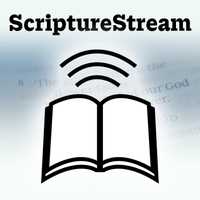- Lesson 5, continued:
- Discipline (I Corinthians 5:1-7): This is to try to save the erring, keep the church pure, and cause others to fear, i.e., to know that sin will not be tolerated (I Timothy 5:19-20).
- II Thessalonians 3:6; Titus 3:10-11
- Negatively: Any effort to put the church in the entertainment field or in business is without Bible authority.
- Conclusion: Though a church may be right in name, worship, and plan of salvation, if it corrupts the functions of the church, it cannot long remain of Christ.
- Discipline (I Corinthians 5:1-7): This is to try to save the erring, keep the church pure, and cause others to fear, i.e., to know that sin will not be tolerated (I Timothy 5:19-20).
- Lesson 6:
- Introduction: In this lesson, we emphasize the necessity of respecting the structure (organization) in and through which Christians function collectively in spiritual matters.
- Relative to Christians, the word church is used in three senses:
- The assembly of the whole church (I Corinthians 14:23, 34-35)
- The whole family of God; all saved by Jesus’ blood (Matthew 16:18; Ephesians 3:15; Hebrews 12:23)
- There is no organization for the church universal.
- There are no collective functions assigned for the church universal.
- There is no assigned common oversight for the church universal.
- Christ is the head of the body, king of the kingdom, shepherd of the flock, and all saints are brethren (Ephesians 1:22-23; Acts 2:30-33; John 10:11, 16, 27; Matthew 23:8)
- The local church – a relationship where saints agree to work together under a common oversight and pool their resources to finance the work Christ assigned to it.
- The local church is the only structure known to the New Testament in and through which saints are to worship and work together under a common oversight in the things of Christ.
- It is an independent unit answerable only to Christ (Acts 20:28).
- Each church is to have elders as soon as men attain the qualifications (I Timothy 3:1-7; Titus 1:5).
JJ
September 16, 2015
For further study, see also:
Questions or comments? Join our Discord server for further study.
